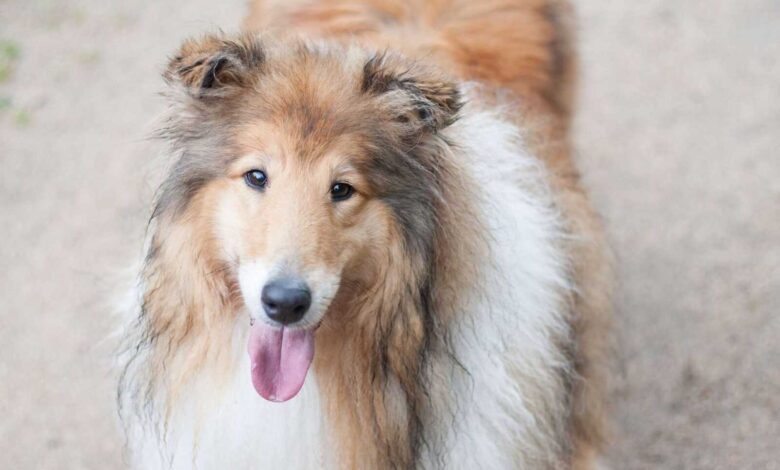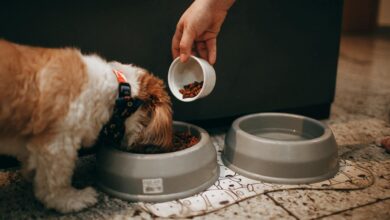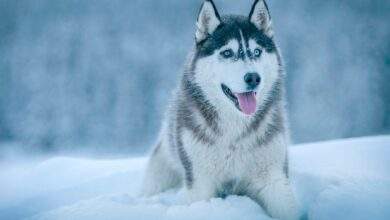
Nourishing your dog’s coat. Ensuring your dog has a healthy and shiny coat goes beyond aesthetics—it’s a reflection of their overall well-being. In this comprehensive guide, we will explore key dog diet and nutrition tips that play a crucial role in maintaining a beautiful and healthy coat.
Table of contents
Nourishing Your Dog’s Coat
Why Dog Coat Health Matters
Before we delve into the specifics of diet and nutrition, it’s important to understand why a dog’s coat health is so significant:
1. Protection: A dog’s coat serves as a natural protective barrier, shielding them from environmental elements. It offers protection against sunburn, insects, and physical injuries.
A well-maintained coat helps your dog stay comfortable in different weather conditions. It keeps them warm during the winter by trapping heat and prevents overheating in the summer by allowing proper airflow.
2. Temperature Regulation: Your dog’s coat plays a pivotal role in temperature regulation. It helps them stay warm during cold spells and cool during hot weather.
In colder months, the coat traps warm air close to the skin, acting as an insulator. In warmer weather, it prevents overheating by facilitating heat dissipation.
3. Health Indicator: The condition of your dog’s coat often serves as an indicator of their internal health. A shiny, lustrous coat is typically a sign of a healthy dog.
Conversely, a coat that appears dull, brittle, or shows patchy fur may signal underlying health issues such as allergies, nutritional deficiencies, or skin problems.
Now that we understand the importance of coat health, let’s delve into the essential dog diet and nutrition tips that contribute to a vibrant coat.
Dog Diet and Nutrition Tips for a Healthy Coat
To ensure your dog’s coat remains healthy, shiny, and free from common problems, consider the following dietary and nutritional guidelines:
1. Prioritize High-Quality Protein
Animal-Based Proteins: Dogs are primarily carnivorous animals, and their diet should predominantly consist of high-quality animal-based proteins. Look for dog foods with ingredients like chicken, beef, or fish.
Protein is the cornerstone of maintaining the structural integrity of your dog’s coat. It provides the necessary building blocks for healthy hair and skin.
Essential Amino Acids: Pay attention to the presence of essential amino acids like methionine and cysteine in the dog food. These amino acids are critical for coat health.
Tip: Be cautious with dog foods where plant-based proteins dominate, as they may not provide the essential amino acids necessary for coat health.
2. Embrace Omega-3 Fatty Acids
Skin and Coat Health: Omega-3 fatty acids, commonly found in fish oil, are renowned for promoting healthy skin and a glossy coat. Look for dog food with added omega-3s or consider omega-3 supplements.
Omega-3s contribute to skin health by reducing inflammation and itchiness, common issues that can affect the coat’s appearance and comfort.
Anti-Inflammatory Benefits: Omega-3s possess anti-inflammatory properties, which can help alleviate skin issues like allergies.
Tip: Consult your veterinarian for the correct dosage when supplementing your dog’s diet with omega-3s.
3. Load Up on Vitamins and Minerals
Balanced Diet: Ensure your dog’s diet includes essential vitamins and minerals, such as vitamin A, vitamin E, and zinc. These elements are crucial for skin and coat health.
- Vitamin A promotes the growth of hair and prevents dry, flaky skin.
- Vitamin E acts as an antioxidant, protecting skin cells from damage.
Biotin: Biotin, a B-vitamin, is essential for a healthy coat. Some dog foods incorporate added biotin, or you can find biotin supplements designed for dogs.
Tip: Scrutinize dog food labels to ensure they encompass these essential vitamins and minerals.
4. Adequate Hydration
Water Intake: Proper hydration is crucial for overall health, including skin and coat hydration. Make sure your dog has constant access to clean, fresh water.
Wet Dog Food: Wet dog food can aid in your dog’s hydration, as it typically contains more moisture than dry kibble.
Tip: If your dog is reluctant to drink water, consider investing in a dog water fountain, which can encourage them to drink more.
5. Address Common Skin and Coat Issues
Allergies: If your dog experiences persistent itching, hair loss, or skin irritations, consult your veterinarian to identify and address potential allergens.
Parasites: Routinely administer flea and tick prevention to thwart infestations that can damage your dog’s skin and coat.
Dry Skin: For dry, flaky skin, dietary adjustments may help, but consulting your vet is essential for a precise diagnosis.
6. Select the Right Dog Food
Consult Your Veterinarian: Seek guidance from your veterinarian to pinpoint dog food that suits your dog’s specific needs, whether they have allergies, sensitivities, or dietary restrictions.
Gradual Transition: When changing your dog’s diet, do so gradually to prevent digestive issues. Gradually incorporate the new food by mixing it with their current food.
Picky Eaters: If your dog is selective about food, explore different flavors and textures within their dietary restrictions to find what they enjoy.
7. DIY Dog Food Recipes
Supplementary Treats: Create homemade dog treats or food that provide essential nutrients to enhance your dog’s diet. Ensure these recipes are nutritionally balanced and suitable for canine consumption.
Tip: Always seek advice from your vet or a veterinary nutritionist before introducing homemade dog food into your pet’s diet.
Nourishing Your Dog’s Coat
A healthy coat isn’t just about looks—it’s a testament to your dog’s overall well-being. By providing a well-rounded diet rich in high-quality protein, omega-3 fatty acids, vitamins, and minerals, you’ll help your furry friend maintain a coat that not only looks fantastic but also signifies their robust health. Remember, consulting your veterinarian for tailored advice is always a wise choice when it comes to your dog’s diet and nutrition.








